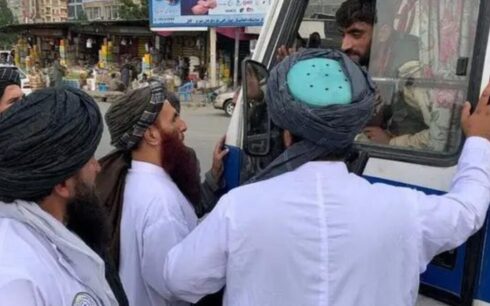A week after receiving an invitation from the United Nations for the third Doha meeting, the Taliban have yet to make a final decision on their participation.
Zabihullah Mujahid, the Taliban’s spokesperson, said that discussions about their delegation’s participation in the third Doha meeting on Afghanistan are ongoing.
Mujahid told Amu that the decision is not yet finalized.
Should the Taliban decide to attend, the announcement will come from their Ministry of Foreign Affairs, according to Mujahid.
Meanwhile, a previous participant in the UN’s earlier Doha meetings suggested that the Taliban are likely to join the third session. However, debates continue over whether their delegation will include a minister or a special representative.
Faiz Mohammad Zaland, a representative of Afghan civil society who attended the second Doha meeting nearly three months ago, noted that the Taliban’s participation in the third session is conditional. He emphasized that the level of their representation is still under negotiation.
During a visit to Kabul on May 19, the UN Deputy Secretary-General urged Amir Khan Muttaqi, the Taliban’s acting foreign minister, to attend the third Doha meeting.
At the same time, Human Rights Watch expressed concern over the United Nations potentially accepting the Taliban’s demands, especially the exclusion of women and civil society representatives from the meeting.
Sources revealed that the Taliban’s key conditions for attending include being given a UN seat and the exclusion of women and civil society representatives from the meeting.
Faiz Mohammad Zaland reiterated the importance of the meeting, noting that the Taliban have been invited to discuss significant issues with other attending officials. The level of the Taliban’s participation is still under deliberation among their officials.
A senior diplomat previously mentioned to Amu TV that the participation of non-Taliban figures has not been finalized, and there will be no discussions on appointing a UN special envoy or addressing human rights issues at the upcoming meeting.
Abdul Hamid Mahmoodi, a university professor, emphasized that a unilateral presence of Taliban representatives and the interim government cannot fully address Afghanistan’s complex issues, which require acknowledging and addressing the country’s internal realities.
Women’s rights activists also voiced their concerns, stating that the exclusion of their representatives and the omission of human rights and women’s issues from the agenda are unacceptable.
Fatima Etemadi, a member of the Northern Women’s Protest Movement, argued that any discussions about legitimizing the Taliban government that ignore women’s rights are unacceptable.
Human Rights Watch has called on the United Nations not to yield to the Taliban’s conditions. Heather Barr, the associate director of the women’s rights division at Human Rights Watch, told Amu TV that the UN should insist on the inclusion of all Afghan representatives, especially women, and prioritize human rights.
“The United Nations should take the approach that if the Taliban don’t want to participate, if they set conditions that exclude other Afghans, particularly Afghan women, or refuse to discuss human rights, they don’t need to attend the meeting. The international community can convene with Afghans, including women’s rights defenders, to address this serious women’s rights crisis,” said Barr.
Amir Khan Muttaqi indicated that the Taliban are open to discussing climate change, the private sector, and drug trafficking at the third Doha meeting.
As of now, the United Nations has not announced the list of participants or the agenda for the meeting. The third session of special representatives in Doha is scheduled for June 30 and July 1, with the aim of enhancing international engagement with Afghanistan in a more structured and focused manner.





